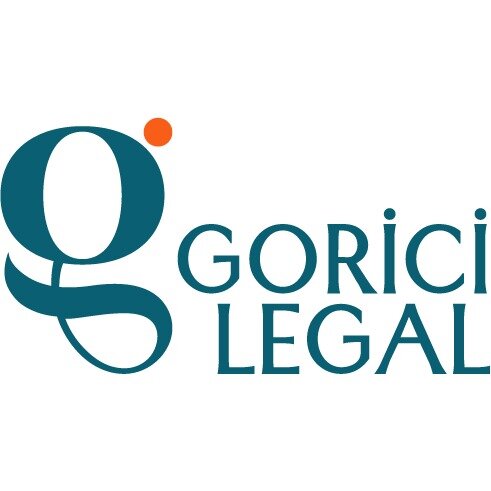Best Employment Rights Lawyers in Timișoara
Share your needs with us, get contacted by law firms.
Free. Takes 2 min.
List of the best lawyers in Timișoara, Romania
About Employment Rights Law in Timișoara, Romania
Employment rights in Timișoara, Romania, are governed by the national labor laws and regulations that aim to protect both employees and employers. As a part of Romania, Timișoara follows the Labor Code, which sets out the fundamental rights and obligations for both parties in an employment relationship. These rights include, but are not limited to, fair wages, safe working conditions, non-discrimination, and the right to a fair dismissal procedure. Additionally, employees are entitled to maternity/paternity leave, annual leave, and protection against unfair treatment. Employment laws are enforced by local labor inspectors and through the judiciary system in Romania.
Why You May Need a Lawyer
Many situations can arise during employment where legal advice may be required. Some common scenarios include wrongful termination, disputes over contracts, workplace harassment or discrimination, unpaid wages, or issues related to working hours and conditions. In such instances, a lawyer specializing in employment rights can help navigate the complexities of the law, provide representation in disputes, and ensure that your rights as an employee or employer are protected.
Local Laws Overview
In Timișoara, as throughout Romania, employment rights are primarily governed by the Labor Code. Key aspects include:
- Employees should not work more than 48 hours per week, including overtime.
- Overtime must be specifically agreed upon and compensated with extra pay or time off.
- The minimum wage is regulated by the government and must be adhered to by employers.
- Employment contracts must be registered with the labor authorities.
- The non-discrimination principle prohibits any form of discrimination based on gender, race, age, religion, or other personal characteristics.
- Both employees and employers have the right to terminate employment contracts with a notice period, unless immediate termination is justified under specific circumstances.
Frequently Asked Questions
What is the legal length for a probationary period in Timișoara?
The probationary period for regular employees cannot exceed 90 calendar days, while for management positions, it can extend up to 120 calendar days.
Are part-time workers entitled to the same rights as full-time workers?
Yes, part-time workers are entitled to the same rights and protections as full-time workers, proportionate to their working hours.
How is overtime paid?
Overtime must be compensated with higher pay, typically an increase of at least 75% of the regular salary, or with equivalent time off.
Can my employer change my work schedule without notice?
Employers can change work schedules but must provide sufficient notice and must consult with employees unless such changes are stipulated in the employment contract or collective labor agreements.
How are disputes between employees and employers typically resolved?
Disputes are often resolved through mediation, negotiation, or legal action if necessary. Employees can file complaints with local labor inspectors or seek legal recourse in court.
What are my rights if my employment contract is terminated?
If terminated, employees are generally entitled to receive notice, except in cases of disciplinary actions, and may be eligible for severance pay depending on the terms of their contract.
Can an employee be fired because of sickness?
No, dismissal due to temporary incapacity for work is generally prohibited. However, there are exceptions, such as long-term illness impacting job performance while exceeding the protection period.
What is the vacation policy under Romanian law?
Employees are entitled to a minimum of 20 working days of paid annual leave per year, according to the Labor Code.
Are foreign workers subject to the same employment laws in Timișoara?
Yes, foreign workers employed in Romania are subject to the same laws and protections as Romanian nationals, although additional paperwork and permits may be required for employment.
Is workplace harassment addressed under Romanian employment law?
Yes, workplace harassment is prohibited, and victims have the right to seek redress through labor inspectors and the courts. Employers are obligated to ensure a safe and respectful work environment.
Additional Resources
If you're seeking information or assistance regarding employment rights in Timișoara, consider reaching out to the following resources:
- The Romanian Ministry of Labor and Social Protection
- The National Council for Combating Discrimination
- Local labor inspectorate offices
- NGOs that specialize in workers' rights and protection
- Legal aid clinics available in Timișoara and across Romania
Next Steps
If you believe you need legal assistance in the field of employment rights, here’s how to proceed:
- Document all relevant details and evidence related to your case, including contracts, communications, and timelines.
- Consult with a specialized employment lawyer in Timișoara who can provide tailored legal advice based on your situation.
- Consider reaching out to local labor authorities to file a complaint if necessary.
- Engage in negotiations or mediation as a first step to resolving disputes, if applicable.
- Prepare to take legal action through the courts if other options do not lead to a satisfactory resolution.
Ensuring that you have all the necessary information and guidance can significantly influence the outcome of your employment rights issues.
Lawzana helps you find the best lawyers and law firms in Timișoara through a curated and pre-screened list of qualified legal professionals. Our platform offers rankings and detailed profiles of attorneys and law firms, allowing you to compare based on practice areas, including Employment Rights, experience, and client feedback.
Each profile includes a description of the firm's areas of practice, client reviews, team members and partners, year of establishment, spoken languages, office locations, contact information, social media presence, and any published articles or resources. Most firms on our platform speak English and are experienced in both local and international legal matters.
Get a quote from top-rated law firms in Timișoara, Romania — quickly, securely, and without unnecessary hassle.
Disclaimer:
The information provided on this page is for general informational purposes only and does not constitute legal advice. While we strive to ensure the accuracy and relevance of the content, legal information may change over time, and interpretations of the law can vary. You should always consult with a qualified legal professional for advice specific to your situation.
We disclaim all liability for actions taken or not taken based on the content of this page. If you believe any information is incorrect or outdated, please contact us, and we will review and update it where appropriate.










